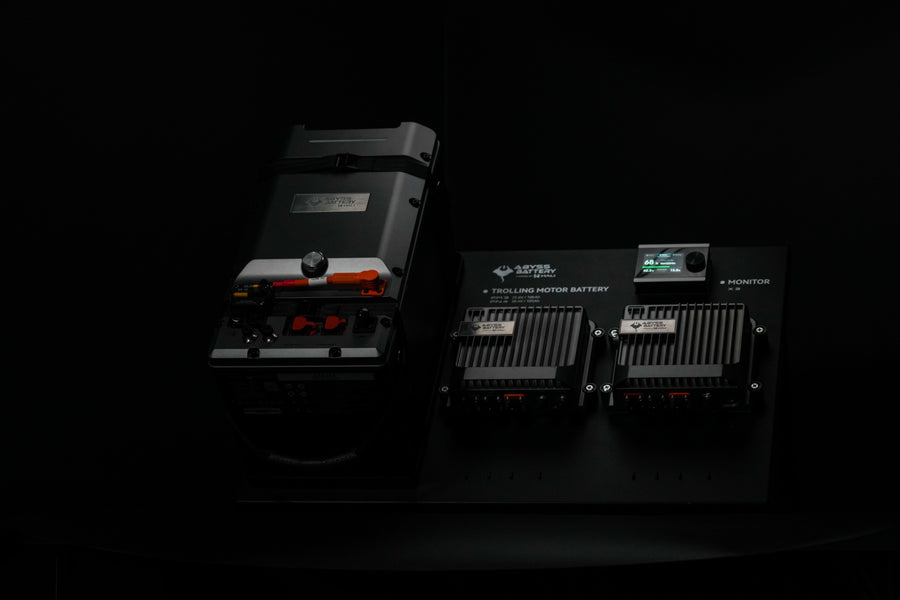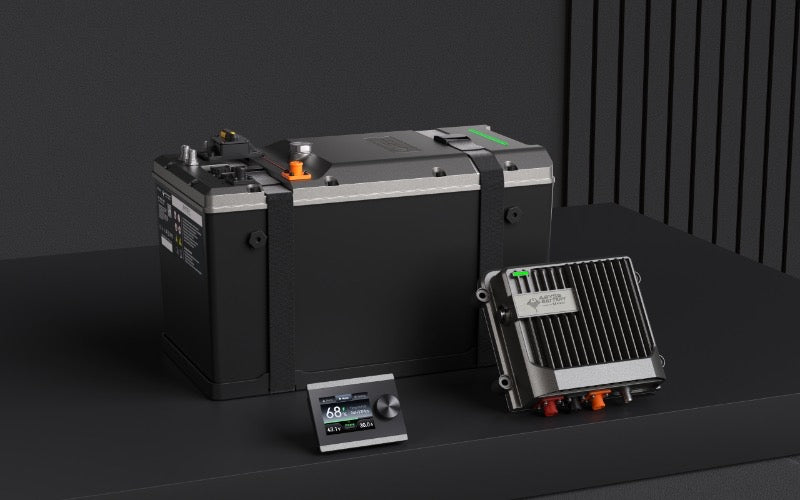The Environmental Benefits of Lithium-Ion Marine Batteries

The push for sustainable energy solutions is making waves in maritime sectors. Bodies of water are vital parts of Earth’s ecosystems, and they are unfortunately suffering from pollution and the consequences of producing non-renewable energy sources.
The transition from traditional marine energy sources to more sustainable options is crucial for safeguarding our environment and creating a future where maritime activities coexist harmoniously with nature. Explore the environmental benefits of lithium-ion marine batteries and explore how they can help us achieve sustainable water travel.
Traditional Marine Batteries and Their Environmental Impact
Lead-acid marine batteries have been the go-to choice for boaters due to their affordability and ease of production. However, they come with significant environmental drawbacks. The production of lead-acid batteries emits harmful substances that contribute to air pollution. Plus, when disposed of improperly, they can leak toxic lead and acid into ecosystems, posing a threat to all life forms.
When we consider the number of boats and ships navigating our waters, the cumulative effect of these batteries becomes alarming. Water pollution can devastate marine habitats and degrade water quality and the health of aquatic species.
Traditional batteries are not very energy efficient; vessels consume a lot of fuel yet don’t get as much use from batteries as they could. This further contributes to greenhouse gas emissions. Adopting better energy solutions, such as lithium-ion batteries, is necessary to mitigate negative environmental impacts.
The Advantages of Lithium-Ion Batteries Over Traditional Lead-Acid Cells
Lithium-ion batteries offer various environmental and economic benefits over traditional cells. Here’s why you should invest:
Environmental Advantages
- Lithium-ion batteries decrease greenhouse gas emissions by enabling cleaner propulsion systems that do not rely on fossil fuels.
- Lithium-ion technology has high energy efficiency, ensuring that marine vessels utilize less power and minimize their environmental footprint.
- Lithium-ion batteries do not produce the same toxic byproducts as lead acid batteries, reducing the risk of contaminating marine habitats.
Economic Advantages
- Though more expensive than other batteries, lithium-ion cells offer long-term savings through decreased fuel consumption and maintenance costs.
- With higher energy density, lithium-ion batteries enable great performance of marine vessels.
- The extended lifespan of lithium-ion batteries reduces replacement frequency and lowers the overall cost of ownership.
By swapping out your boat’s current battery for a lithium-ion model, you can achieve cost savings while benefitting the environment.
Marine Applications for Lithium-Ion Batteries
Lithium-ion batteries are promising alternatives to traditional marine batteries because they offer a cleaner and more efficient energy solution for various applications:
- Lithium-ion batteries power electric motors for yachts, ferries, and other vessels, providing a clean alternative to diesel power.
- Lithium-ion batteries assist in reducing fuel consumption in vessels with hybrid systems by storing energy when engines run efficiently and supplying it when needed.
- Lithium-ion batteries are reliable, safe backup power sources in case of an onboard power system failure.
- They power onboard auxiliary systems and electronics, such as lighting, navigation systems, and communication devices. This reduces reliance on fuel.
- Lithium-ion batteries store generated energy on boats equipped with solar panels or wind turbines, enhancing energy independence and sustainability.
By integrating lithium-ion technology into marine applications, we pave the way for a more sustainable and responsible approach to energy use.
Future Challenges and Innovations in Marine Battery Technology
Enhancing Energy Storage Capacity
Increasing the energy storage capacity is a challenge of using marine battery technology. As vessels demand more power for long journeys and advanced onboard systems, innovators must work on developing batteries that can store more energy while maintaining efficiency and safety.
Improving Charging Infrastructure
The marine industry must expand and improve the charging infrastructure to support the growing number of electric and hybrid vessels. This includes creating fast-charging stations at ports and enhancing charging capabilities offshore while facilitating the widespread adoption of lithium-ion technologies.
Recycling and Disposing of Batteries
We can’t forget to address the end-of-life management of lithium-ion batteries. Innovations in recycling processes are necessary to ensure that we can reclaim materials. This minimizes the environmental impact of resource consumption.
Enhancing Safety Features
Safety continues to be a primary concern with lithium-ion batteries. Researchers and engineers are focusing on innovations that enhance battery safety features, such as advanced cooling systems and better thermal management, to prevent overheating and fires.
Integrating With Smart Technology
The future of marine battery technology will include further integration with smart technologies. This includes developing batteries that can communicate with onboard systems to optimize performance, offer predictive maintenance, and improve energy management. This could lead to more intelligent and efficient marine operations.
Caring for Your Lithium-Ion Battery
Taking good care of lithium-ion batteries can extend their lifespan and support the performance of your vessel. Here are some tips to help you look after your lithium-ion marine batteries:
- Ensure that all connections are secure and free from corrosion. Regularly inspect connectors and terminals for rust, and clean them with appropriate solutions to maintain optimal conductivity.
- Use a quality battery management system or charger designed for lithium-ion technology to prevent overcharging. Overcharging can lead to overheating and reduced battery lifespan.
- Keep the batteries at a stable temperature, and avoid exposure to extreme heat or cold. High temperatures can degrade battery performance, while frigid temperatures can temporarily decrease capacity.
- Regularly inspect the battery casing for wear, bulging, or damage. Address any issues promptly to avoid further complications.
- Implement battery monitoring systems to track performance metrics, such as voltage, capacity, and discharge rates, and optimize energy usage.
- Maintain a balanced charging and discharging routine. Deep discharge cycles can strain the battery, so it’s best to recharge before completely depleting the battery.
- Always adhere to the manufacturer’s care instructions and maintenance guidelines. This includes recommended charging practices, storage conditions, and inspection routines.
The Role of Lithium-Ion Batteries in a Greener Future
The environmental benefits of lithium-ion marine batteries are undeniable. They offer a cleaner, more efficient alternative to traditional energy sources, aligning with the growing demand for sustainable boating practices. These batteries play a vital role in protecting all bodies of water and creating a brighter future for maritime industries.
Are you in need of a 36V lithium trolling motor battery for your vessel? At Abyss Battery, we offer quality, affordable cells so you can enjoy your day on the water. By taking proactive steps toward sustainability, we can all contribute to a healthier planet and a more responsible approach to maritime energy.





Leave a comment